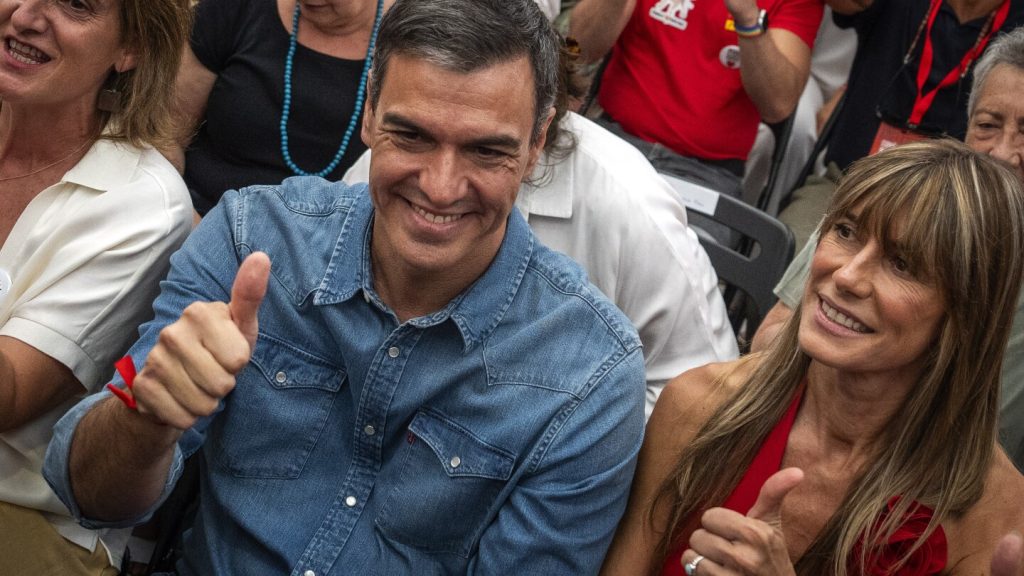Prime Minister Pedro Sánchez of Spain is facing a critical decision regarding his future in office after a court opened preliminary proceedings against his wife on corruption allegations. Sánchez took five days off to think about his next steps, claiming that the legal complaint against his wife was a personal attack on his family. He is expected to announce his decision on Monday, which could include resigning, seeking a parliamentary vote of confidence, calling a new election, or remaining in office. Each option could have significant implications for key legislative plans and upcoming elections in Catalonia and the European Parliament.
Sánchez, who has been Spain’s prime minister since 2018, was able to form a minority leftist coalition government in November with the support of small regional parties. Despite his popularity internationally, he remains a polarizing figure in Spain. He has accused online news sites aligned with the opposition conservative Popular Party and the far-right Vox party of spreading false allegations against his wife. His supporters view the situation as a wake-up call to combat baseless attacks in Spanish politics, while critics, including the Popular Party, have labeled Sánchez’s response as frivolous and politically motivated.
Some political analysts, such as Nagore Calvo Mendizabal from King’s College London, see Sánchez’s decision-making process as a strategic political maneuver. They suggest that his handling of the corruption allegations could help him rally national support against attacks from the right-wing parties. The opposition parties view Sánchez’s contemplation of resigning as a tactic to garner sympathy and boost his electoral prospects. The outcome of Sánchez’s announcement on Monday will not only shape his political future but also have ripple effects on the Spanish political landscape and upcoming elections.
The uncertainty surrounding Sánchez’s decision has put Spain in a state of suspense as the public awaits his next move. The potential consequences of his choice on legislative matters, the Catalonia election in May, and the European Parliament election in June are significant. Sánchez’s tenure as prime minister has been marked by challenges and controversies, and his handling of the corruption allegations against his wife has become a focal point in Spain’s political discourse. Regardless of the outcome, Sánchez’s decision will have far-reaching implications for the country’s political stability and future direction.
As Sánchez deliberates on his future, the political drama in Spain continues to unfold, with different stakeholders expressing contrasting views on the situation. While Sánchez’s supporters emphasize the need to combat false allegations and maintain political integrity, his critics accuse him of using the controversy for electoral gain. The divisions and tensions within Spanish politics are exacerbated by these developments, highlighting the fragile nature of the country’s political landscape. The outcome of Sánchez’s announcement will shape the trajectory of Spain’s governance and the dynamics of its political environment in the months to come.


